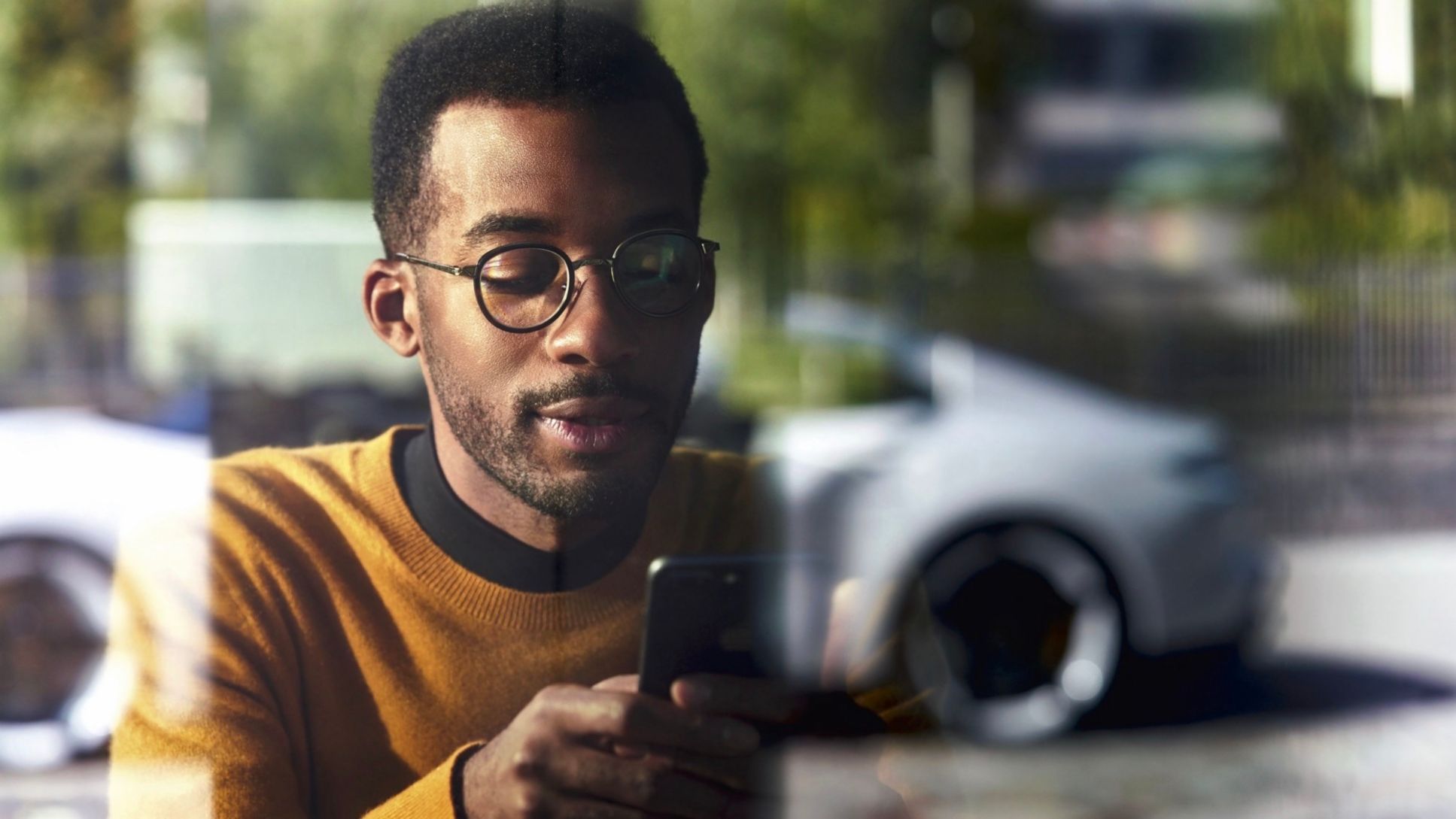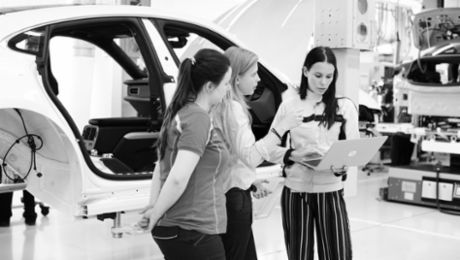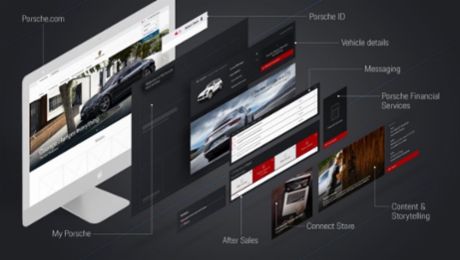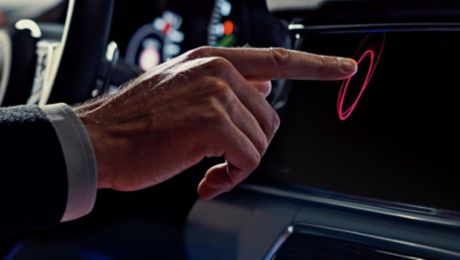The e-commerce market is on track to reach more than $6.5 trillion by 2023. Its share of total global retail sales has grown from 7.4 percent five years ago to 14.1 percent in 2020, and this figure is expected to reach 22 percent in 2023.
In the automotive world, we’re starting to see more and more automakers realize the importance of e-commerce to their continued success. With customers everywhere using and enjoying the benefits of online shopping, OEMs increasingly focus on online channels and new sales processes. And yet, meeting new customer expectations and engaging consumers in the channel of their choosing is no easy task, especially in the premium segment. Automotive companies need to create effective omnichannel strategies and also to reassess their strategies continually.
We sat down with Boris Weiand, Director Digital Sales at Porsche, and Bastian Plieninger, Head of Digital Products at Porsche Digital. They talk about the world of e-commerce, their vision of future customer touchpoints, and Porsche Digital’s role in advancing e-commerce related technologies.
Boris, how important is e-commerce for Porsche? What is your vision in this field, and what strategy do you pursue?
Boris: We want to offer our customers a digital shopping experience that matches their exclusive lifestyle. Our vision is that our customers can experience and buy all Porsche products and services online that can be purchased offline, regardless of time and place. More precisely, we are committed to offering our customers a distinctive shopping experience that is consistent, seamless, and satisfying, no matter where or when the interaction is taking place, what they are buying, or which channel they are using. For us, every touchpoint, both offline and online, is an opportunity to delight and excite our customers. As we are looking to optimize every touchpoint along the customer journey, e-commerce is becoming a more significant piece of the automotive retail puzzle. It is a growth area for us, and we are rising to the challenge.
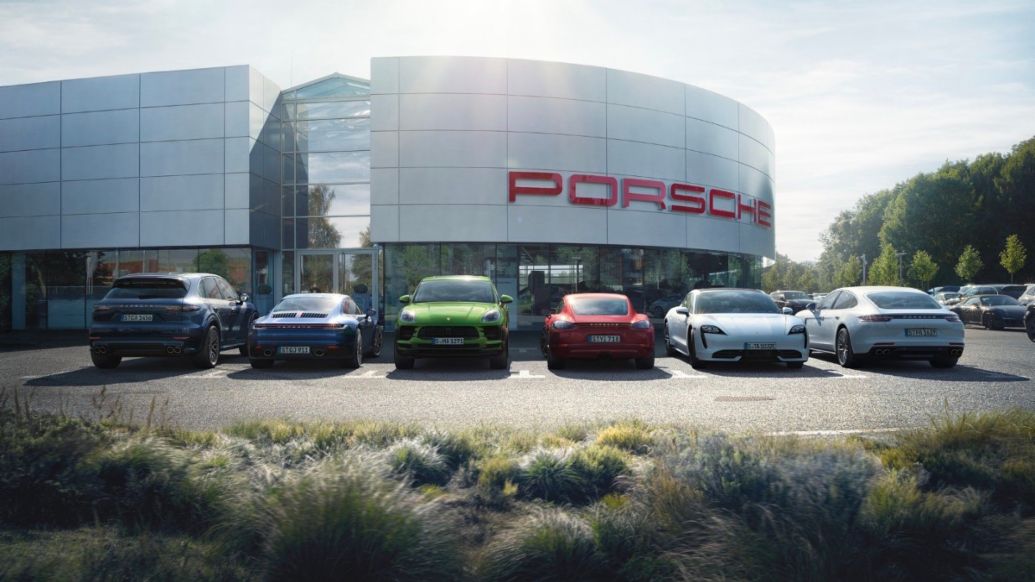
How does Porsche, as a global brand, deal with the peculiarities of different markets or regions?
Boris: We have teams in Germany, the US, and China, where we develop local, market-specific e-commerce strategies. In China and the US, for example, we have completely different strategies than in Europe because the customer demands and habits are so different. To give an example: Local platforms in China have a completely different user journey than those we are familiar with in Europe. It is, therefore, crucial that we not only build up local expertise but also rely on strong partners who build on our ecosystem.
Bastian: As another example, at our Porsche Digital location in Atlanta, we also locally implement parts of our applications specific to the market. There are different providers for evaluating a used car, for instance. Legal issues are quite different as well, as are many other issues. This is why it’s important to collaborate closely with our colleagues in the markets — but also to give them the chance to work autonomously and react quickly to market-specific challenges. This is even more true for China and the digital commerce habits there, as Boris already mentioned.
What development has e-commerce taken at Porsche in the past ten years?
Boris: Porsche has always been quite proactive when it comes to new digital business models. Ten years ago, our vehicle search and our online 3D configurator were quite advanced. But our customers’ demands have been continually evolving and dialled up by technology. But what we see today is not the death of car dealerships and offline stores. It’s instead the evolution of automotive retail. While dealerships will continue to play an essential role in the customer journey, especially in the premium segment and concerning car sales, customers increasingly have omnichannel expectations.

Bastian: When I joined Porsche coming from a pure digital player roughly two years ago, I was impressed by how agile the teams were already set up. A good organization and an agile way of working, in addition to attracting the right people, are paramount when you build high-performance digital services. Looking at the tech realm from a broader perspective, however, I would say there are enormous challenges we have to tackle. The pace of innovation will never be as slow as it is today. At the same time, we are in the middle of a complex transformation in our industry. So, we need to act quickly, become faster, and do the right things at the same time.
I believe that we have put together an incredibly passionate and highly skilled team, including product managers, product owners, engineers, technical architects, as well as management and all adjacent departments and partners, that is ready to cope with these challenges and win in this race.
What role does Porsche Digital play in this?
Bastian: Broadly speaking, we at Porsche Digital are responsible for the software part of the digital products: We provide the product owners, the engineering teams, and the technical architects that build the solutions. Porsche AG is responsible for the business, which is the overall product road mapping and the strategic perspective. To be successful, all these dimensions have to be very closely aligned.
So, we join forces as one team with mutual targets regardless of department structures. Is this always easy? No. But it’s the best and the fastest way to deliver exceptional experiences, especially during the Corona pandemic, which has led to abrupt shifts on many levels but was somehow like a time machine for us. Even more, people were suddenly interested in ordering their Porsche online or getting in touch with the dealers via the digital channel.
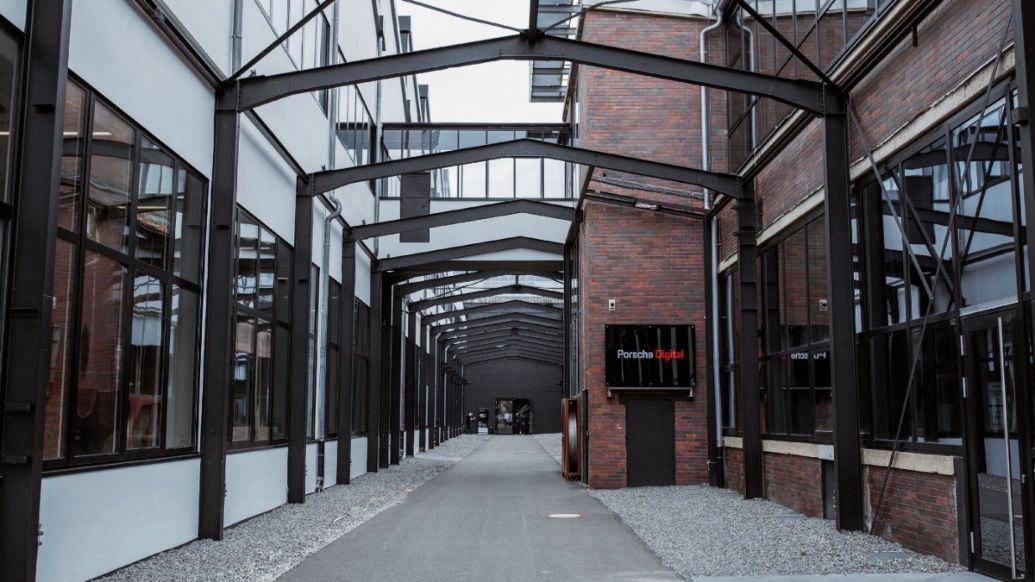
Boris: We have established an international network across several countries and continents, with Porsche and Porsche Digital working hand in hand to achieve the best possible outcome. At the beginning of our collaboration, we sat down together to dismantle silos and define a common set of goals. I think this played a large part in our success. We have created an agile product organization that spans the entire company. We offer exciting opportunities on both sides. Ultimately, it is irrelevant where you work.
Are there any specifics that you have to pay particular attention to as a sports car manufacturer when setting up an e-commerce platform?
Bastian: Porsche builds fantastic sports cars. This is a huge advantage. Our goal is to create similar excitement in the digital space when purchasing a vehicle online or to enter the Porsche lifestyle. But to some extent building a car and creating software and providing digital products are different things.
Boris: Yes, there’s a big challenge in bringing two worlds together: cars and digital. You can’t and shouldn’t experiment with cars on a whim. When it comes to software, we have to be willing to experiment to reach the speed of big players, even if only in part. Following our heritage, we aim to strive in both worlds and not only create some of the best premium sports cars but also be known for great software.
In what direction will e-commerce develop in the next years? What can Porsche customers expect in the future?
Bastian: I am convinced the separation between online and offline is more and more a thing of the past. The boundaries between the two worlds increasingly blend. So, we need close collaboration with all parties involved to create a desirable omnichannel experience.
Furthermore, two trends run counter to each other: On the one hand, personalization, AI, and data are becoming even more important to provide unique customer experiences and keep up with the pure tech companies. For instance, the decision-making process for ordering a Porsche, supported by digital services, is complex and quite different from ordering a shirt on the web. We need a deep understanding of customer needs. On the other hand, the topic of data security is on the rise, and customers expect companies to handle their data highly responsible.
Boris: Compared to what digital players are doing in the field of e-commerce, we have only just begun. But for us, the online channel is now at eye level. We are a trustworthy brand, and with increasing data protection requirements, we want to offer our customers not only a consistent, seamless, and overall trustworthy platform.
If you want to take a look at the current state, visit our German online shop!
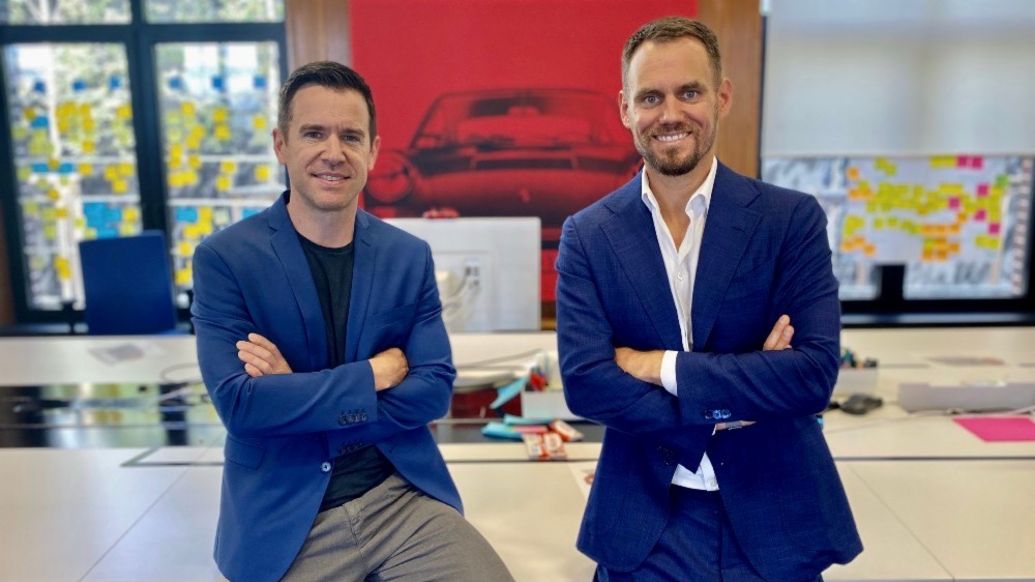
Info
Text published by Boris Weiand, Director Digital Sales at Porsche and Bastian Plieninger, Head of Digital Products at Porsche Digital.
